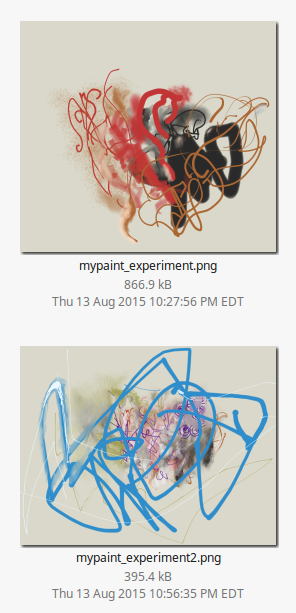
Linux application MyPaint has some possibilities: it's just a matter of clicking through the brushes and separating the tacky from the less-tacky. It's fairly intuitive: you choose a background and start noodling. The main brush I'm interested is "blend," which allows modeling from dark to light. Chibi Paint has an excellent "watercolor" brush that can be used for blending. MyPaint's is adequate -- it may be a matter of messing with the speed and opacity settings.
